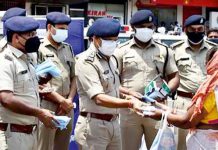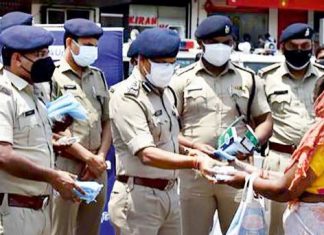
The safety, welfare and security of the citizens of Mumbai are always a matter of concern for the Mumbai Police, day in and day out. There have been many instances in the past whereby, due to a lapse of judgement or negligence, unwarranted and unpleasant situations have taken place, affecting an individual or the society at large. To counter such incidents which can be detrimental to everyone concerned, the Mumbai Police have come up with certain guidelines for citizens to follow.
Residential Area
Hire qualified/experienced chowkidars only
Check antecedents/credentials of chowkidars and domestic servants before hiring them. Insist on references from their previous employers. Furnish their full particulars to your police station in the format suggested by them. Always employ different chowkidars for day and night duties.
Society Secretaries Advised to Brief Residents on the following:
 Whenever they employ a new servant, the local police station should be informed. His or her photograph, fingerprints and other details should be obtained and submitted to the local police station.
Whenever they employ a new servant, the local police station should be informed. His or her photograph, fingerprints and other details should be obtained and submitted to the local police station.
Residents should install a door with iron bars inside the flat, superior quality night latches and special eye lens on the main door. Ideally, interaction with strangers and vendors should be through the grilled door. High wattage light source with pilfer proof cover outside the main door should be installed.
 They should not keep huge amounts of cash, valuable ornaments etc., in the house. They should also avoid discussing finances and other important family matters in the presence of servants/outsiders.
They should not keep huge amounts of cash, valuable ornaments etc., in the house. They should also avoid discussing finances and other important family matters in the presence of servants/outsiders.
Avoid humiliating servants on petty matters. Do not penalize them for small damages.
It is important to inform the police about any unattended object lying around. Extend full cooperation to the police.
A special register should be maintained and kept in the custody of the chowkidar or in the society’s office. Whenever police officers visit the area, they should get an entry in such registers.
Commercial
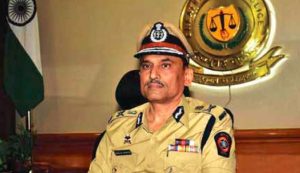 Hire security personnel from reputed agencies only.
Hire security personnel from reputed agencies only.
Do not follow a regular route or time if you are given the responsibility of carrying cash or precious commodity on a regular basis.
Avoid cash transactions as far as possible, especially in the presence of servants/outsiders.
Avoid talking loudly, and in public, especially over the telephone/mobile, about financial matters.
All security personnel, including lift men, should be thoroughly briefed on various aspects of security.
Use CCTV and other electronic alarm systems to secure the premises.
Inform the police about any suspicious activity or unclaimed object lying for a long time. Extend full cooperation to the police whenever required.
Fraud Money Schemes
What Fraudsters Say
Double the money in two months or less.
Post-dated cheque given as a guarantee.
Claims of investment in a grand project or cultivation. Money is collected in large amounts by a large part of the prize chains. In fact, chain marketing companies work on the basis of pyramid schemes – a non-sustainable business model requiring people to invest money for exchange of money in the United States, Great Britain, France, Canada, Malaysia, Norway, Australia, New Zealand, Nepal, Sri Lanka and Iran. This kind of scheme is illegal in many countries. Generally, 99.99% people lose money in any Multilevel Marketing (MLM) or pyramid scheme.
Reality
 All schemes offering high returns of double money within two months or in such a short span of time have no legal sanction, nor are they reliable.
All schemes offering high returns of double money within two months or in such a short span of time have no legal sanction, nor are they reliable.
Post-dated cheque is not a guaranteed payment device, as it could bounce when presented at the bank.
There are no projects, especially agriculture-based, which can give returns in less than a year. In fact, tree plantations take at least ten years to mature.
Gift schemes and chains are an offence under the Prize Chits and Money Circulation Schemes (Banning) Act of 1978.
Even registered companies are not allowed to promote and run such schemes.
Senior Citizen’s Safety
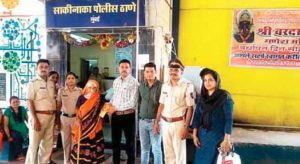 Most of the culprits committing crimes are known to the victims, such as servants, watchmen, craftsmen etc.
Most of the culprits committing crimes are known to the victims, such as servants, watchmen, craftsmen etc.
Criminals are generally not on police records.
One of the main concerns of the police is the poor response while seeking information of older adults living alone in the jurisdictions of various police stations.
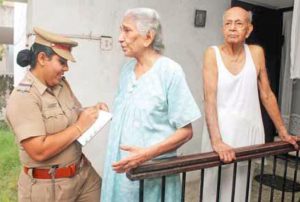 Senior citizens dependent on helps/servants do not provide required information to the police for fear of losing them.
Senior citizens dependent on helps/servants do not provide required information to the police for fear of losing them.
The Mumbai Police is making efforts to motivate senior citizens with the help of Dignity Foundation, AGNI (Action for Good Governance and Networking in India) and Federation of Senior Citizens Organisation of Maharashtra.
Children and Women Safety
Raise your voice against violence. Dial 103.
No one has the right to….
Tease or sexually harass you, make you uncomfortable, beat you, torture you physically or mentally, use force on you in any way, whether at home, school, college, a social gathering or on the streets; no matter what your relationship with the person is.
Keep in Mind
Violence against you is not your fault. Violence is not anyone’s right. Do not hesitate or afraid to call our helpline number 103, 24X7, for crime against women. We assure you that the police will come to your aid immediately. Your call may change the situation.
Cybercrime
Do’s
Choose strong passwords and keep them safe.
Review bank accounts and credit card statements regularly.
Never leave your computer unattended once you have signed in to online banking.
After completing your transactions, ensure that you sign out, clear your cache, and close your browser. Oftentimes, people forget to sign out of an online banking session.
Dont’s
Do not share, disclose, or provide your bank card number or password to another party, or website. Banks will not send you an email requesting this information. If your bank practices this very unsafe routine, you should change banks.
Do not save your bank card number or password on a publicly-accessed computer or your own computer.
If you use a computer at an internet café or public library, change your password immediately after completing your session.
When selecting a password, choose a series of characters that cannot be easily hacked by someone. The best passwords are made up of an alpha-numeric combination that has more than eight characters.
Do not click links on emails which directs you to your bank page.
Do not reveal details regarding your credit/debit card on the telephone as the person may be impersonating a bank official.
Banking Precautions
Never introduce an unknown person for the purpose of opening an account in your bank.
Do not encash cheque/draft of an unknown person through your account.
Do not keep your account inoperative for a long time.
To avoid theft in postal transit or courier services and subsequent cheating, keep track of the cheque/draft/pay order sent through post and courier services.
Bank transactions should be handled personally as far as possible.
Take care of your cheque books. Do not keep signed cheques in a place which is easily accessible by others.
All bank transactions should be counterchecked to ensure that deposited cheques have been released.
Monthly statements of your bank account should be regularly checked. Physically check and count the cash after withdrawal. Never hand it over to a third person for counting.
Avoiding Bouncing Cheques
Insist on D.D. or Pay Orders if dealing with an unknown party.
Post-dated cheques should be avoided.
If a cheque bounces, a notice should be served to the person within 15 days of the event. If there is no response to the notice, a complaint should be filed in the court under Section 138 of the Negotiable Instruments Act, 1981, where effective remedies are available to the public. All cases of bounced cheques may not be offences of cheating under the Indian Penal Code.
If Caught in a Crossfire at Work or on the Street
Lie down on the ground immediately.
Avoid unwanted curiosity. The criminal may feel threatened and shoot at you.
When possible, move to a safer place, slowly, without drawing attention to yourself. Take cover behind solid objects like a car or a wall.
If the criminals are within sight from your hiding place, try to note and memorize their distinguishing features.
If you are out of sight of the criminals, call 100 and inform the police.
If you are within earshot, try to remember their conversation. Do not disturb the scene of crime.
Lure of Jobs in the Gulf
There is a chain of unauthorized agents and sub-agents who claim to recruit for vacancies in the Gulf countries. These agents collect huge amounts from needy job seekers via attractive and misleading advertisements in newspapers.
Precautions
While applying for a new passport, the filled-up the application form and payment should be personally handed over at the passport office counter. Avoid using the services of self-proclaimed agents loitering outside.
There are no authorized agents appointed by the Passport Issuing Authority.
Passports cannot be sold. Touts may try to convince you so, but take note that traveling on a bogus passport
is illegal.
Look for the registration number of recruiting agents on all advertisements for jobs outside India. Insist on seeing the original registration certificate of the agent and check its validity before handing over your passport. Get your passport, valid visa, travel tickets, and ensure completion of all immigration formalities before handing over the full payment.
Payment should be made only to authorized agents. Always insist on a receipt.
Property Purchase
Checking Legality of Construction
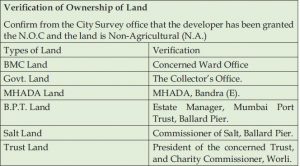 Checking of Commencement Certificate or Intimation of Disapproval by Municipal authorities.
Checking of Commencement Certificate or Intimation of Disapproval by Municipal authorities.
Contact the builder/developer for plans submitted by the architect. Place a notice in the newspaper for clearance of title of the land. Obtain a certificate from the solicitor. Confirm whether construction is residential or commercial, F.S.I. permitted, and utilized by the builder. Seek information on percentage of reservation made for government flats or any special category, whether covered under Urban Land Ceiling Reservation.
Vehicle Theft
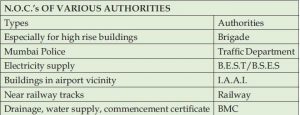 Every year, nearly 36,000 vehicles, amount to Rs 115 crore, are stolen in India. Out of these, only about 14,500 are traced, often unroadworthy, with many components missing. These vehicles are stolen only because thieves are provided with the opportunity to steal them. Very often, cars are left improperly secured and unattended. It is only with the installation of anti-theft devices that a thief’s attempts can be frustrated. Be alert against theft even when your car is parked in a secure parking facility (garage, petrol pump, etc.) at night. If such parking facilities are not available, parking in a well-lit area is the next best alternative. It is advisable to get the number of your car etched on your windscreens and window glasses. It helps the authorities to trace your car if stolen.
Every year, nearly 36,000 vehicles, amount to Rs 115 crore, are stolen in India. Out of these, only about 14,500 are traced, often unroadworthy, with many components missing. These vehicles are stolen only because thieves are provided with the opportunity to steal them. Very often, cars are left improperly secured and unattended. It is only with the installation of anti-theft devices that a thief’s attempts can be frustrated. Be alert against theft even when your car is parked in a secure parking facility (garage, petrol pump, etc.) at night. If such parking facilities are not available, parking in a well-lit area is the next best alternative. It is advisable to get the number of your car etched on your windscreens and window glasses. It helps the authorities to trace your car if stolen.
Do’s
Use a steering lock, clutch lock, brake lock, etc. Double-check all doors, including the boot if possible. Install loud alarm systems in your car so that thieves are discouraged when trying to break in. Try and use detachable music systems and take them with you whenever you park the car for a long time to dissuade thieves from stealing them. Paint your car number on the front and rear end of the body, apart from the number plate. Ideally, have it etched on the windscreens and window glasses too. This prevents them from being misused by criminals using fake number plates.
Dont’s
Never leave the vehicle door unlocked, nor the windows partially open. Avoid leaving valuables inside the car, even if it is locked, as this will attract thieves. Avoid extra fittings as these tempt prospective thieves. Never leave the key dangling in the ignition
What is a Bomb?
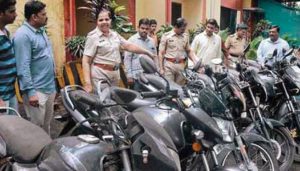 Bombs are explosive devices. They can be constructed to look almost like anything and can be placed or delivered in many ways. The only common denominator that exists among bombs is that they are designed to explode. Most bombs, or as we call them IEDs (Improvised Explosive Devices), are hand-made and limited in their design only by the imagination of, and resources available to the bomber. When looking for a bomb, suspect anything that looks unusual and out of place. The thumb rule is, anything, unless it belongs to you or you know (not presume) about, may be a bomb. Leave it to bomb technicians to determine whether it the object is an explosive or not.
Bombs are explosive devices. They can be constructed to look almost like anything and can be placed or delivered in many ways. The only common denominator that exists among bombs is that they are designed to explode. Most bombs, or as we call them IEDs (Improvised Explosive Devices), are hand-made and limited in their design only by the imagination of, and resources available to the bomber. When looking for a bomb, suspect anything that looks unusual and out of place. The thumb rule is, anything, unless it belongs to you or you know (not presume) about, may be a bomb. Leave it to bomb technicians to determine whether it the object is an explosive or not.
Physical Security Measures in Emergency Situations
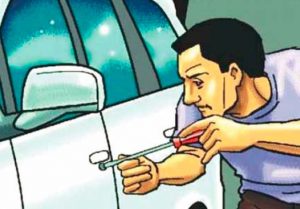 Explosions and bomb threats are a harsh reality. As the threat spreads, it becomes imperative for the common man to actively participate in dealing with such situations.
Explosions and bomb threats are a harsh reality. As the threat spreads, it becomes imperative for the common man to actively participate in dealing with such situations.
Awareness and preparation are important in dealing with a threat, whether potential or real. If people at large understand and execute certain laid down guidelines, they can greatly reduce the potential of personal injury, property loss and trauma that accompanies bomb threats. Most importantly, they can help reduce panic, the most contagious of all the human reactions and the ultimate achievement of the person executing the bomb threat.
Do’s
Evacuate people immediately to a safe distance.
Open all windows and doors.
Place sand bags around the suspected object.
Inform the bomb disposal squad.
Inform the Fire Brigade, Hospital and Ambulance.
Dont’s
Do not touch or remove the object unless you are duty-bound.
Do not open or puncture the package.
Do not submerge packet in water.
Do not accept identification marks at face value.
Do not pass metallic objects over the package.
Do not direct flash light directly over the suspected object.
Do not cut the strings or wire.
Do not bring suspected device into the security control room or police station. Always remove the people and not the bomb from scene.
Do not attempt to open the packet by hand.
Don’t be a dead hero.
You can reconstruct a building or house, but you cannot bring back a dead man alive.
Prevention is better than cure.

